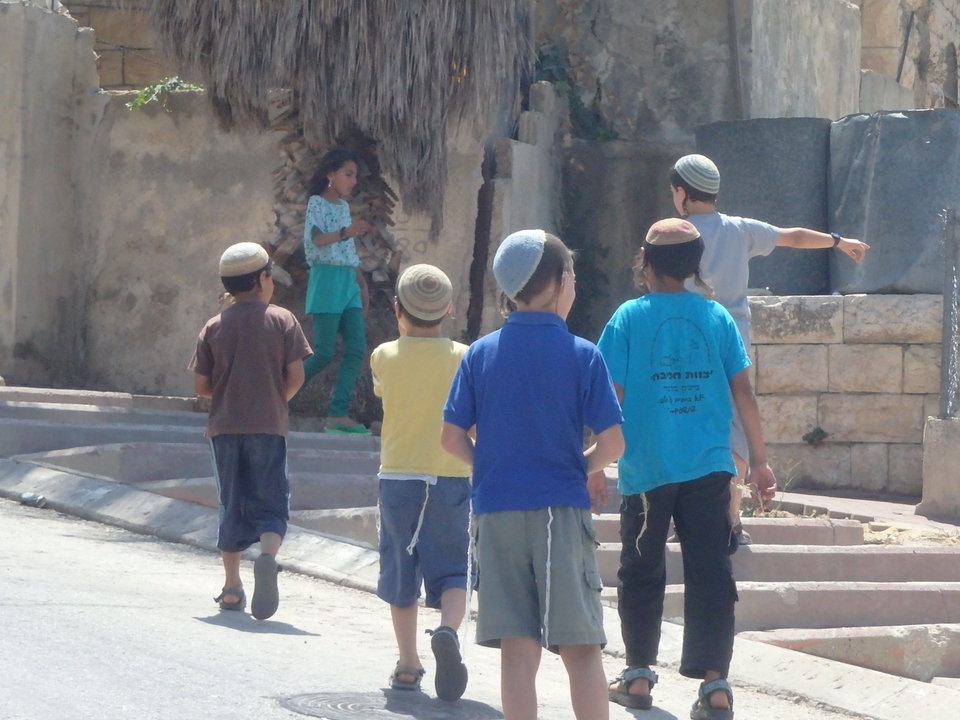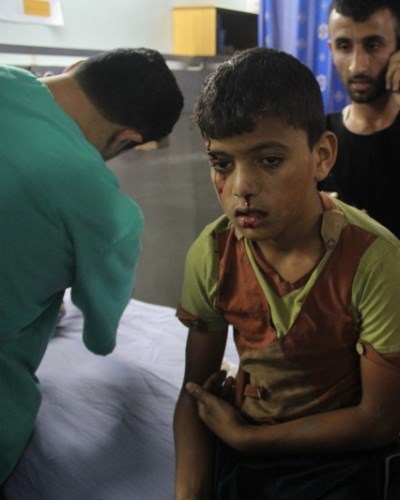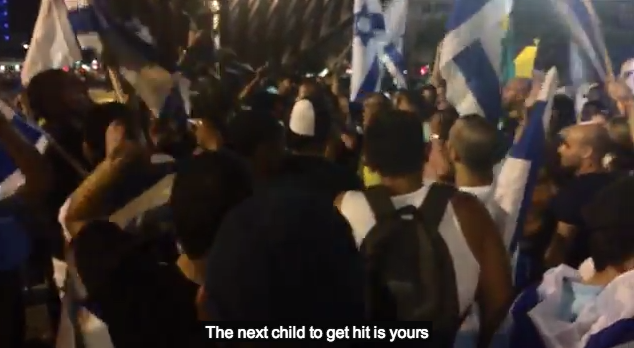Category: Reports
-
Video: Free the bubbles
30th July 2014 | International Solidarity Movement, Khalil team | Hebron, Occupied Palestine At approximately 1 pm on July 28th, international volunteers made giant bubbles with Palestinian children to celebrate Eid, in Tel Rumeida, al-Khalil (Hebron). Several settlers passed by in their cars and were visibly annoyed, and two stopped to complain to the Israeli soldiers…
-
Gaza Ministry of Health: ‘Muslim holy days marred by genocide in Gaza’
29th July 2014 | Gaza Ministry of Health | Gaza, Occupied Palestine The Ministry of Health Gaza is pained to express its deep sadness and outrage at the Israeli attacks on Gaza on our holy days of Eid al-Fitr. In the last 24 hours, 120 people have been killed, bringing the total to 1,156. Particularly distressing…
-
Video: Israelis in Tel Aviv chanting, “There’s no school tomorrow, there’s no children left in Gaza! Oleh!”
29th July 2014 | International Solidarity Movement | Tel Aviv, Occupied Palestine Israelis in Tel Aviv, on 26.7.2014, the 19th day of Israel’s massacres in Gaza, cheer the genocide on: “There’s no school tomorrow, there’s no children left there [in Gaza]! Oleh!” Every evening, in Tel Aviv, right wing marchers flood the streets, waving Israeli flags…



